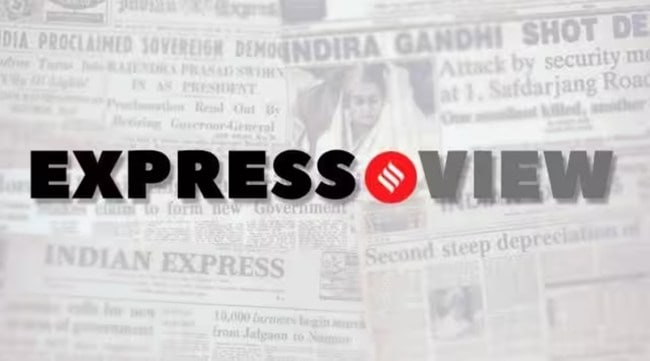Opinion Express View: SBI must disclose who purchased electoral bonds, who received them
It must not delay disclosing this information any further. After all, matters involving the world of campaign finance in India should be at the centre of the electoral process, and it begins with the voters' right to know
 The Court's decision on Monday to reject SBI's plea is, therefore, immensely welcome.
The Court's decision on Monday to reject SBI's plea is, therefore, immensely welcome. In February, a five-judge bench of the Supreme Court ordered the State Bank of India to provide all information on electoral bonds — including details on who purchased the bonds and which party received them — to the Election Commission (EC) by March 6. The Court had also asked the EC to publish this information by March 13.
However, last week, SBI asked the Court to extend the deadline for submitting details to June 30. Accepting SBI’s plea would have meant that the detailed information on electoral bonds would be available only after the elections. This would have deprived voters of vital information before they exercised their franchise.
The Court’s decision on Monday to reject SBI’s plea is, therefore, immensely welcome. The Court rightly asked the SBI for an explanation for its inaction: “In the last 26 days… what steps have been taken by you? The application is…silent on that.”
The bank must not lose any time in complying with the order and furnish all the information by the close of business hours on March 12. Considering that SBI already has all the details, the KYC information of the donors, it has no reason to procrastinate. The EC must also publish that information by March 15. As the CJI said while reversing the electoral bond scheme in February, “information about funding of political parties is essential for the effective exercise of the choice of voting.”
Further, SBI must also provide the matched data — linking the donor of the bond with its recipient. As the judgment had also noted, “there is a legitimate possibility that financial contribution to a political party would lead to quid quo pro arrangements because of the close nexus between money and politics”.
As per the details provided by SBI, 22,217 electoral bonds were used for donating to political parties. As each bond would have two sets of information — donors and receivers — this would imply a total of 44,434 information sets to be “decoded, compiled and compared”. As the country’s largest bank, SBI has all the manpower resources it needs to match the data. It also has all the details of the donors and recipients. It must no longer seek refuge in the excuse of “practical difficulties with the decoding exercise… due to the stringent measures undertaken to ensure that the identity of the donors was kept anonymous”.
The EC must also be proactive on this issue. It should have, in the first instance itself, pushed SBI to release all the information. It must not delay disclosing this information any further. After all, matters involving the world of campaign finance in India should be at the centre of the electoral process and it begins with the voters’ right to know.






